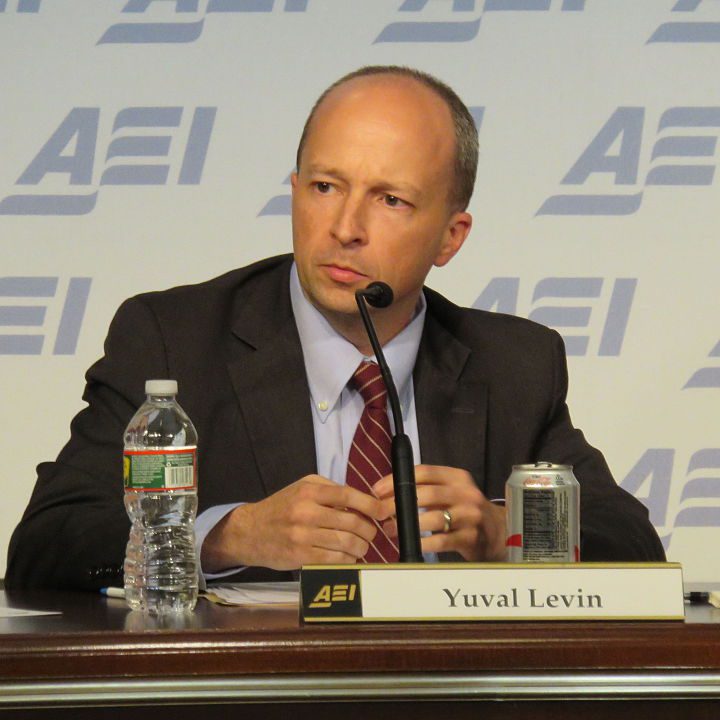As a reaction to our political polarization and associated dysfunctions, all sides are expressing a yearning for national unity. If we could only all agree! But Yuval Levin says that our problem is not that we can’t agree, but that we can’t disagree constructively. The solution, he says, can be found in the Constitution, which was designed precisely to manage the disagreements in a diverse nation.
“The breakdown of political culture in our day,” [Levin] observes in the book, “is not a function of our having forgotten how to agree with each other but of our having forgotten how to disagree constructively.” The framers of the Constitution, he argues, were aware of the dangers both of centralized power and of democracy: They had fought an imperious king a decade before, and in the intervening years they had lived through a democracy so disunited that it fell apart. What they fashioned in 1787 was neither a monarchy nor a libertarian compact but a system whose stability and cohesion arose precisely from the guarantee that its citizens would be forced to deal with each other constantly—always negotiating, competing and forming coalitions.
Swaim went to the American Enterprise Institute in Washington, where Levin is a Senior Fellow, and interviewed him. Levin talked about the difference between politics in most of American history and the way it is today:
“Throughout most of American history,” he says, “there’s a majority party holding a really complicated coalition together. And there’s a minority party trying to build a coalition. They’re both involved in coalition building.” . . .
“Since about the 1990s we’ve had two minority parties, and they don’t actually do a lot of coalition building,” he says. “Mainly they try to get their people out, as if they hold a big majority already and only need turnout. They don’t do much thinking about how they might bring new people to their side. They don’t ask: What can we offer them? What can we do that would bring them in?”
Both liberals and conservatives assume that they are the majority! So that the party that wins in a 51%-49% election governs as if it had a mandate from the people! Only to be indignant that they can’t get their agenda through!
America is actually much more complex and Americans have more nuanced positions than the binary of left and right would account for. The checks and balances of the Constitution and the representative form of government it sets up make it difficult for any one faction to take control and steamroll all of the others. We have to compromise, horse trade, and form shifting coalitions with each other, with everyone respecting the process and following the rule of law. All of this has the effect of moderating the extremes. Thus, our Constitution makes possible, in the words of our national motto, E Pluribus Unum, out of many one. That is to say, a unity of differences. These are real differences, including political differences. But our Constitution holds us together while preserving the dynamism that comes from the clash of ideas.
The Constitution is deliberately not “majoritarian,” in which the majority always rules. Rather, it deliberately thwarts that principle of pure democracy so that minorities and minority positions are protected. Thus, Levin praises the Electoral college:
“Our way of electing chief executives is actually more democratic, not less so, than the parliamentary systems of Europe,” Mr. Levin argues. “The British have had three prime ministers since the last election. Who chose those people? A majority of the majority party in Parliament, like 250 people who all have the same political interest and who all went to the same two universities. That’s not better than the Electoral College.”
Hard as it may be to imagine, Mr. Levin contends, our presidential elections would be more acrimonious and polarized without the Electoral College. “It forces us to fight our political battles in the middle,” he says. Without it, “the Democrats would just focus on California, because there are a lot of people in California, the Republicans would just focus on the South. They would talk only to their own voters. They would not have to talk to each other and they would not have to appeal to the same voters.”
The Electoral College, in other words, “means you can run up your numbers as much as you want in California and the South. If you didn’t win states in the middle—Michigan, say—you didn’t win the election. To win Michigan, you have to speak to the middle of the country. You have to speak about the issues that you are uncomfortable with as a Republican or a Democrat.”
HT: Michael R. Strain
Photo: Yuval Levin by Taylordw – Own work, CC BY-SA 4.0, https://commons.wikimedia.org/w/index.php?curid=43925637













